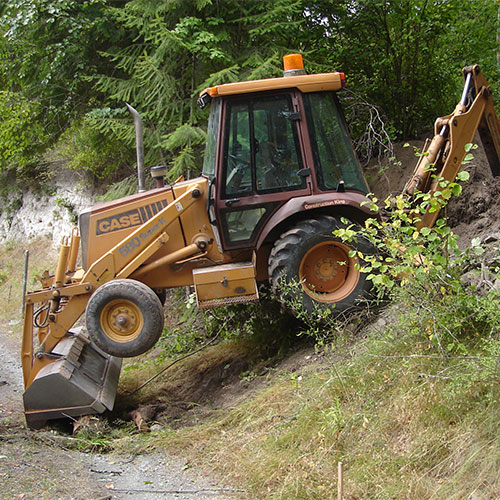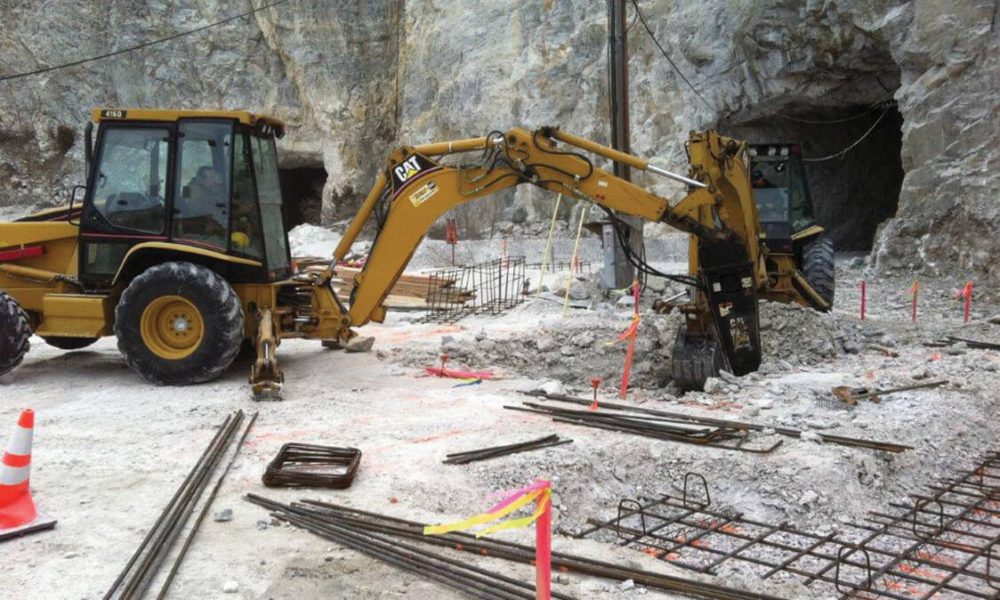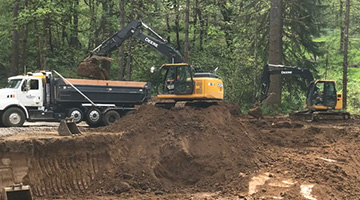Cost Effective Lancaster Excavation - Top Quality Excavation at Competitive Rates
Comprehensive Excavation Techniques: Understanding the Basics for Success
The mindful preparation, specific implementation, and thorough interest to detail needed in excavation projects demand a comprehensive strategy that incorporates numerous essential elements. The true proficiency exists not simply in comprehending these fundamentals yet in flawlessly incorporating them to browse the complexities of excavation tasks with finesse.
Recognizing Excavation Project Planning

Successful excavation tasks are improved the foundation of thorough and thorough planning. The preliminary phase of any kind of excavation project is the preparation stage, where critical choices are made that can significantly affect the outcome of the job. Throughout this stage, it is important to gather all appropriate information regarding the website, including topographical studies, soil make-up, and any prospective threats that may exist. Recognizing the project range, timeline, and spending plan restrictions is critical for creating a detailed excavation strategy that guarantees the job's success.
One secret aspect of excavation task preparation is the growth of a detailed timeline that describes the series of turning points, tasks, and due dates. By very carefully considering all these variables during the planning phase, excavation projects can be carried out efficiently and successfully, leading to effective results - septic ohio.
Soil Evaluation and Website Assessment
Carrying out thorough soil evaluation and site evaluation is an essential step in the preparation stage of any kind of excavation project. Soil analysis includes establishing the composition, structure, and residential or commercial properties of the soil at the excavation website. This details is crucial for understanding the soil's bearing capability, wetness web content, and possibility for disintegration, which are key consider establishing the excavation approaches and equipment required for the task.
Website analysis surpasses dirt evaluation and includes a broader assessment of the overall website problems. This examination consists of identifying any type of possible threats, such as below ground utilities, ecological problems, or unpredictable surface, that can influence the excavation procedure. By completely examining the website, job managers can develop effective excavation strategies that focus on safety and security, performance, and environmental management.
Using advanced innovations like ground-penetrating radar, soil tasting, and drone studies can boost the accuracy and efficiency of dirt evaluation and site assessment. Investing time and resources in these initial steps can inevitably conserve time and stop costly hold-ups or difficulties during the excavation process.
Tools Choice and Usage
Reliable excavation tasks depend greatly on calculated equipment option and use to guarantee optimal efficiency and productivity. Selecting the appropriate devices for the job is important in optimizing effectiveness and minimizing downtime. Variables such as the sort of soil, deepness of excavation, and job scope play a substantial role in determining one of the most appropriate equipment for the task handy.

Along with picking the appropriate equipment, proper usage is essential to job success. Operators should be trained to manage the devices safely and effectively - lancaster trenching. Routine maintenance checks and timely repair work assist avoid malfunctions and guarantee constant performance throughout the project
Safety Actions and Regulations Conformity
In the world of excavation jobs, prioritizing precaution and conformity with laws is extremely important to making certain a safe and secure and legitimately sound operational environment. Safety and security procedures include a series of techniques, including conducting extensive website evaluations, applying appropriate signs and barriers, and providing sufficient safety and security training for all employees included in the excavation process. Adherence to policies, such as OSHA needs in the United States, guarantees that the excavation task satisfies the necessary criteria to safeguard employees, bystanders, and the surrounding setting.

Surveillance Progression and Adjusting Techniques
Exactly how can project supervisors efficiently track the innovation of excavation jobs and adapt their strategies as necessary to enhance results? Monitoring progression is crucial for making sure that excavation jobs find more information stay on track and fulfill due dates. Project supervisors can use various devices and methods to track progress, such as day-to-day report card, regular website inspections, and progressed surveillance innovations like drones and GPS tracking systems. By continually checking the job's improvement, managers can identify any kind of possible hold-ups or issues beforehand and take positive measures to resolve them.

Verdict
In verdict, grasping the fundamentals of comprehensive excavation approaches is necessary for the success of any kind of task. By comprehending project preparation, assessing dirt and website conditions, picking appropriate equipment, abiding by safety laws, and checking progress, project supervisors can make sure a reliable and smooth excavation procedure. Applying these strategies will certainly bring about effective outcomes and lessen potential dangers or setbacks throughout the excavation project.
The preliminary stage of any type of excavation task is the planning stage, where crucial choices are made that can considerably influence the outcome of the job. Understanding the job timeline, scope, and spending plan restraints is important for developing a comprehensive excavation plan that makes sure the task's success.
How can project managers successfully track the advancement try this of excavation projects and adjust their strategies appropriately to enhance end results? By very closely monitoring progression and being eager to adapt strategies, project managers can improve the general success of excavation jobs.
By comprehending job preparation, examining dirt and website problems, picking ideal tools, abiding with safety regulations, and keeping track of progress, project managers can ensure a efficient and smooth excavation process.